Editorials
In the age of viral trends and overnight sensations, few memes have stuck around in the author community quite like “Describe Yourself Like a Male Author Would.” What began as a playful jab at clunky, stereotype-filled female character descriptions has become a recurring joke that resurfaces year after year. While often celebrated for its humor and its sharp critique of certain writing habits, it has also drawn criticism for lumping male authors together in an unflattering way. For writers in the competitive world of self-publishing, the real question is whether this meme encourages better storytelling or simply takes easy shots at a particular group.
In today’s blog, Ginger explores the history of the meme, why it resonates so strongly, and both the valid points behind the humor and the double standards it may reinforce. From his own cringeworthy early writing that made him wince in recognition to examples where male authors have created brilliant, fully realized female characters, he examines both sides of the debate and explains why the meme continues to get under his skin.
As a self-published author navigating the indie book world, I’ve seen my share of trends, tropes, and viral sensations that ripple through writing communities. For the most part, I think they’re amazing. I think it’s so cool that ideas and concepts can resonate with such a large and diverse community of book fans, and I love how #booktok and other book trends have sent book sales skyrocketing, and created superstars out of authors like Colleen Hoover, who got “discovered” on TikTok.
But there’s one meme that’s stuck around like a bad plot twist, and it continues to rub me up the wrong way years after it first became popular. It’s the “Describe Yourself Like a Male Author Would” meme.
If you’re unfamiliar, the meme invites women to parody how male writers might describe them if they were female characters in their books—often reducing them to awkward, objectifying (and, I’ll admit, frequently hilarious) details like “her breasts heaved with emotion” or “she was beautiful, but not in a way that threatened other women.”

I get it. I know it’s meant to be humorous, highlighting clichés that absolutely do exist in male-written literature. But, as I’ll explain, it’s always left a slightly sour taste in my mouth (perhaps because I am one of those “male authors” the memes blithely deride.)

Now, that’s not to say the meme doesn’t have an uncomfortable element of truth to it, but we’ll get to that later. Let’s start first with the history of this social trend.
The describe yourself like a male author would meme exploded on Twitter (now X) way back in April 2018, sparked by young adult author Gwen C. Katz.

She shared excerpts from a male author’s work where he claimed to write “authentic” female protagonists, but the descriptions from his books were actually riddled with stereotypes, like focusing on a woman’s physical allure in ways that felt entirely detached from reality.

This caught fire when media personality Whitney Reynolds challenged women to describe yourself like a male author would, turning it into a viral thread.

Within days, thousands participated, poking fun at overused tropes. Notable examples include one user writing, “She breasted boobily to the stairs, and titted downwards,” which amassed likes and shares for its absurdity. Another: “Wow, she thought, my legs are long. And my boobs are perky. I am a woman.”



The trend was covered widely, with articles from Electric Literature calling it “the most savage Twitter thread in ages” and Know Your Meme documenting its spread. BuzzFeed compiled hilarious entries, and Bored Panda highlighted the empathy gap in male-written women. It even inspired spin-offs, like reversing it to describe men as female authors might (although, perhaps unsurprisingly, those never found much footing.)
Listen, as hysterical as many of these examples are, I hate this meme. I loathe it. I get annoyed every time one of my friends sends me an example, and they send me examples all the time!
But I don’t completely lack self-awareness. I live by the understanding that we only ever get offended by things that have an element of truth to them, and the describe yourself like a male author would meme does have a lot of truth to it.
In fact, part of the reason this meme triggers me is because I can absolutely see myself in it. In fact, when the meme first went viral, I opened up a copy of my first book (the inimitable Adventure Eddy, which until recently held the astonishing record of not having sold a single copy) and was confronted with this passage:
She looked… ripe. That was the only word that could describe big, beautiful Valerie Toussaint. The buttons of her blouse were struggling to contain her hefty bosom. The zipper of her skirt was threatening to burst open. Valerie looked like an unexploded sex-bomb and Eddy was terrified that she’d go off at any moment.
I’m not going to lie, that’s a paragraph worthy of the describe yourself like a male author would meme, and I’d unironically written it a decade before the meme originated.
In my defense, the book was an “old fashioned adventure story” targeted towards male readers, and I like to think my writing has become a lot more nuanced since then (especially since I write for a largely female audience now.) However, I have absolutely been guilty of the sins this meme highlights, and I think that’s why it gets under my skin so much.
Because let’s be real. Literature is absolutely chock full of male authors who’ve bungled female characters, turning them into objects for the male gaze rather than fully realized people.
Sometimes, the fault is well-intentioned. I recently read a terrific adventure book targeted towards men and the only criticism I had of it was that the hero’s fiancée would NEVER have been so patient and understanding with the hero’s behavior. It’s not that the author was objectifying his heroine. It’s just that she didn’t behave in a manner that is congruent with my long experience of relationships with women (as in, at some point, every woman is going to stop putting up with a man’s bullshit.)
But we see examples everywhere. Think of the endless parade of “strong female characters” we have in movies and shows, who are supposed to be tough but are still largely defined by their attractiveness to men, and often the things that make them “strong” have no narrative sense to them at all.
(It’s a daft example, I know, but in the original Shrek movie I always wondered how Princess Fiona had the martial arts skills to beat up Robin Hood and his Merry Men despite spending her entire childhood locked in isolation in a castle.)
The worst part about the describe yourself like a male author would is that it’s rooted in a valid critique, born from frustration with patterns in books that self-published authors like myself often emulate or subvert in our own work. There’s nothing so annoying as valid criticism.
But that being said, it’s still very sexist to imply that all male authors can’t write good female characters. Or worse, that “a male author” as a blanket term captures some universal failing.
The phrasing of the meme itself is deliberately ambiguous. Is it calling out one bad apple, or tarring the whole orchard? Describe yourself like a male author would feels like it’s specifically designed to trigger all male writers, lumping them all into a monolith of incompetence, and then the ambiguity is wheeled out after the fact to defend against any complaints.
Or maybe I’m wrong. Perhaps the meme only triggers authors like myself, who actually recognize themselves in the fictional examples, but I still don’t like it. After all, self-publishing is tough enough without memes that pit genders against each other.
Beyond lumping all male authors together, there’s also the unspoken implication that the meme only exists because female authors are somehow inherently better at writing male characters than men are at writing female characters, as if empathy is a gendered superpower.
I’ll be real with you. Subjectively, I don’t entirely disagree with that assesment. I read a LOT of fiction written by female authors, and I’ll admit that women often seem to be more sophisticated at characterization, with a greater understanding of the “other” side.
But objectively? That’s nonsense. There are countless examples of men writing women badly, sure…
(like, literally, countless examples, including my own)
…but also plenty of fantastic ones where male authors really nail it.
Take Leo Tolstoy’s Anna Karenina, for example. Anna is complex, driven by passion, societal pressures, and inner turmoil—not just her looks. Tolstoy delves into her psyche with empathy, making her a timeless figure.
Henry James’s Isabel Archer in The Portrait of a Lady is another great example. She’s independent, intelligent, and flawed, without being reduced to fodder for the male gaze.
In modern fantasy, Terry Pratchett’s Granny Weatherwax from the Discworld series is a powerhouse—witty, no-nonsense, and fully human, not a stereotype (although perhaps he had an advantage, because we Brits do have immense respect for matriarchal figures.)
Brandon Sanderson’s Vin in Mistborn is another resourceful and layered character, evolving beyond trauma without feeling tokenized.
Look, I’ll throw my beloved Ian Fleming into the mix, as well. The Spy Who Loved Me was a book written from the viewpoint of a female character and Fleming did an arguably brilliant job making her seem real and believable.
These aren’t flukes. They demonstrate that male authors can—and do—write women well when they treat them as people first.
On the flip side, bad examples abound, especially in self-published fiction. I mean, there’s my own Adventure Eddy providing evidence, while critiques on Reddit’s r/menwritingwomen highlight endless cringy lines like a character whose “breasts roll in synch with her eyes” from various novels.
But let’s not pretend this is one-sided. While I absolutely recognize (and am guilty of) the sins highlighted by this meme, there are also plenty of examples of women writing bad male characters, often idealized to the point of unreality or toxicity.
Let’s not even start with Haunting Adeline or the toxic relationship at the heart of It Ends With Us (which spilled over into a real-life toxic relationship when they made a movie of it, between costars Blake Lively and Justin Baldoni.)
Stephenie Meyer’s Edward Cullen in the Twilight saga is a prime offender. He’s over a century old, stalks Bella, controls her life, and romanticizes abusive behaviors like breaking into her room to watch her sleep. Critics argue he reinforces “bad boy” stereotypes that legitimize violence against women.
E.L. James’s Christian Grey in Fifty Shades of Grey, ironically enough inspired by Edward, is similarly problematic—wealthy, domineering, and abusive under the guise of romance. In romance genres, female authors sometimes craft men as emotionless hunks or perfect saviors, misunderstanding how men process feelings (e.g., portraying them as robotic rather than stoic).
I read a lot of romance novels—seriously, a LOT of them—and while I love the genre, I sometimes laugh out loud at how ridiculous some of the male characters are. One or two authors (who I won’t name and shame) have written male characters that make me wonder if they’ve ever interacted with a man before in real life.
I mean, I get it. Romance is meant to be fantasy. These male characters aren’t written to be realistic. They’re written to serve the fantasies of female readers.
But by that logic, can’t we give male authors the same grace? How come unrealistic and objectified characters are okay in romance novels, but somehow they’re offensive in adventure fiction? Both are forms of escapism, but only one genre is held to the standards of this annoying meme.
And let’s be real, here. Publishing is a numbers game, and there are far more female authors than male authors publishing books today. According to the National Bureau of Economic Research, women authored the majority of published works by 2020, up from 30% in 1970. NPR reports women now publish over 50% of books annually, compared to less than 10% historically. In genres like romance and young adult (which are huge in self-publishing) women dominate, meaning more opportunities for missteps. WordsRated stats show 54.39% female authors in the US as of 2019.
Even factoring in my subjective belief that female authors probably are better at writing male characters than vice-versa, by sheer volume alone, there are likely to be many, many more instances of women writing bad male characters than the other way around.
And that’s not even the biggest problem I have with this meme.
Do you know what really grinds my gears? It’s the fact that describe yourself like a male author would results in women inventing these over-the-top examples, not pulling them from actual books.
I mean, sure, there are so many real-life clunkers from male authors that they fuel an entire subreddit!
But instead of naming and shaming through real-life examples, the meme is driven through totally invented content. Hilarious examples like “she boobed breastily” aren’t valid examples of bad writing from men, they’re parody. Out of the thousands of examples created for these memes, none of them are real. They’re all straw men invented to mock male authors, and that turns the entire concept of the meme into nothing but a mean-spirited echo chamber.
Not only is this spiteful and sexist, but it also undermines valid criticism of sexist writing (and as that subreddit points to, there are countless valid examples of sexist writing.)
Instead of calling out specific offenders (like Bored Panda did, to their credit), the meme generalizes and pokes fun at all imagined “male authors.” That’s sexist in its own way, assuming male authors can’t empathize despite many examples that they can, and it distracts from real dialogue in self-publishing circles about improving character depth.
It’s also the sort of double standard that would cause outrage if the genders were reversed. Just because sexism targets men doesn’t mean that it’s okay.
And listen, at the end of the day, I get it. I’ll admit there are hysterically funny examples of the meme. I’ve shared more than a few myself on social media because, hey, who doesn’t love a good roast? It also originates from a very real issue: some male authors (at some points in my career, myself included) do write women poorly. Calling that out helps keep us accountable and helps all of us level up our craft.
But at the end of the day, I think self-published authors should aim higher than taking cheap shots with divisive memes. Whether you’re a male author or a female one, let’s all focus on writing more authentic characters, period.
But that’s just my opinion on the meme. What do you think? Is describe yourself like a male author would just harmless fun? Or does it go too far?
As somebody who recognizes the uncomfortable truth that inspired this meme, I’m open to all opinions on the subject. Share your thoughts below, or even drop your favorite (or least favorite) examples—real or imagined. I’d love to read them.
Ultimately, we’re all here for the same reasons. Let’s discuss how we can all write better across the board.
Share this blog
About the Author

Ginger is also known as Roland Hulme - a digital Don Draper with a Hemingway complex. Under a penname, he's sold 65,000+ copies of his romance novels, and reached more than 320,000 readers through Kindle Unlimited - using his background in marketing, advertising, and social media to reach an ever-expanding audience.

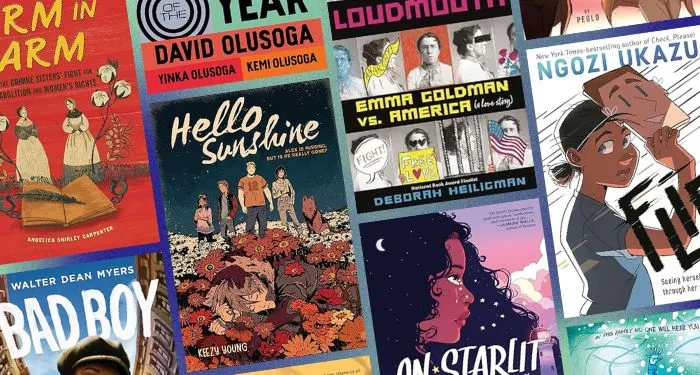


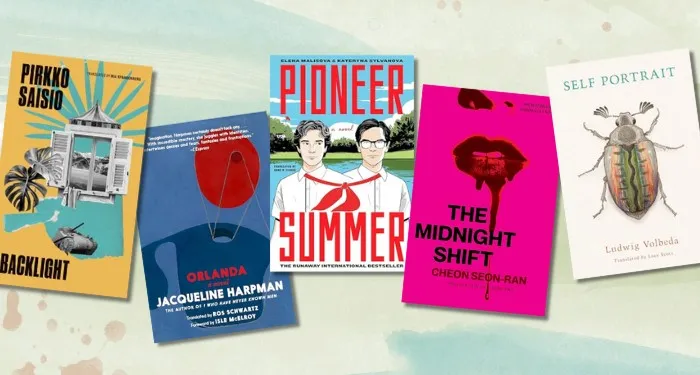
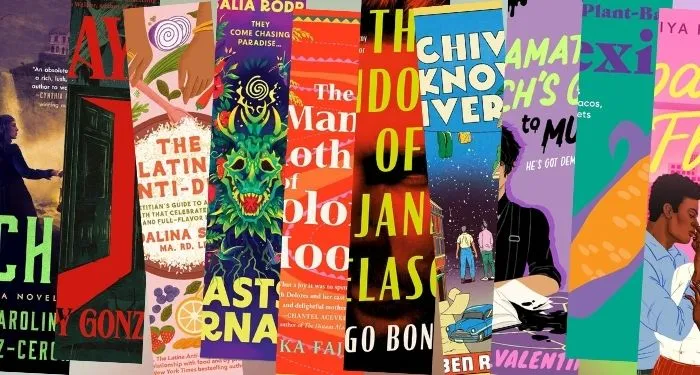
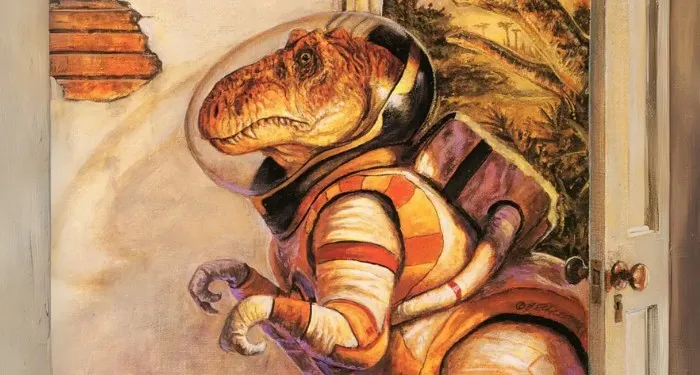
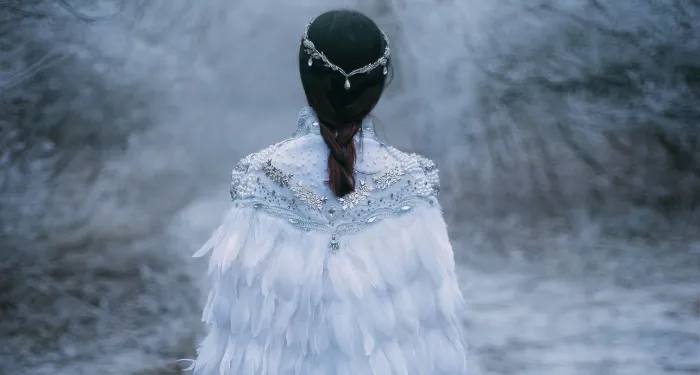


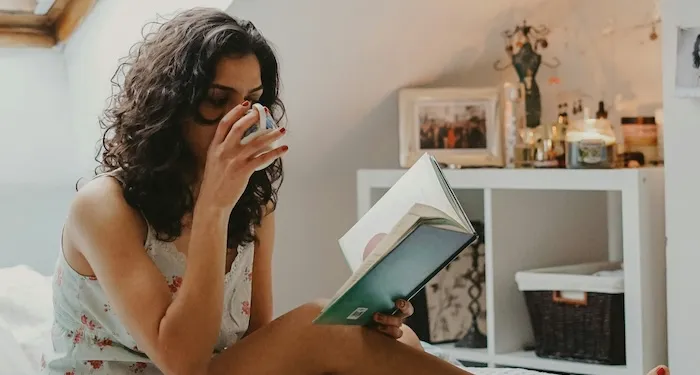






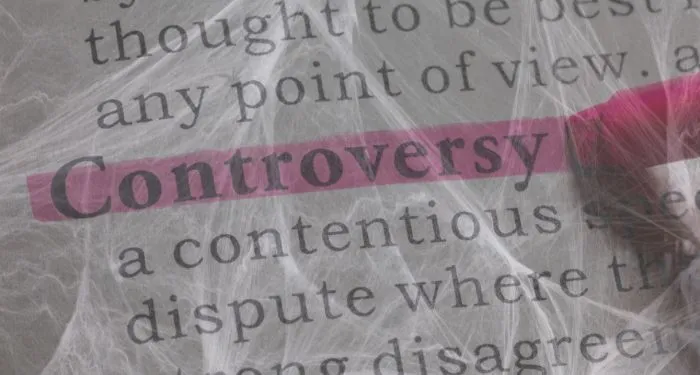

 English (US) ·
English (US) ·